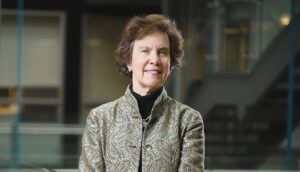Have you ever wondered what is really driving the many initiatives and investments that are taking place in the name of business and development? It was the first question I grappled with when I entered this field over 10 years ago. Yet despite the work of a great many organisations to better understand and quantify the ‘business case’, the answer seems to remain that business and development is largely a leap of faith.
This view emerged at a recent event convened, with Business Fights Poverty, to launch the new Business and Development Centre (BDC) at the Institute of Development Studies. Shankar Venkateswaran, Chief of Tata Sustainability Group, said it most explicitly during the keynote speech which opened the event. He noted that external factors play a relatively small part in driving sustainability at Tata compared to internal drivers like values, employee motivation and Board leadership, and highlighted that it is a “leap of faith” that most often takes a company from its current situation to its future sustainability vision.
Variations of this theme, however, recurred in different guises throughout the day right up to the closing panel debate during which Alistair Fernie, Head of Private Sector for the UK’s Department for International Development (DFID) put it another way. “The evidence base”, he said, “is weak”. He went onto explain that the evidence on business and development is in its infancy if you compare it to, say, the evidence to tackle malaria in Kenya.
John Humphrey, Director of the Business and Development Centre, struck a similar note based on recent BDC work, noting that there is little consensus on where the ground is most fertile for interventions. A deeper understanding of the impact of business activities on development outcomes is vital, he noted, if we are to make best use of the scarce resources available. We need to move beyond a drive to “do more”, and focus on identifying where business really has a unique role to play in removing blockages to development, and understand as well the limits of business and markets.
Refreshingly, the event was also the first time I heard someone question scale as the goal of business and development initiatives. This was Christian Spano, Global Lead for Enterprise Development at Anglo American, who asked whether our focus should really be on scale, and who would benefit as a result? Large companies do have the means to achieve scale, but would this deliver development – or hollow out local markets? Several participants suggested that systemic change was a better goal.
While it clearly takes time to build up an evidence base – this is a pressing task, and should be a priority for those who have already invested a lot of energy to pilot and innovate in this area. The Business and Development Centre aims to contribute by focusing our own efforts, to deliver evidence and analysis on specific development problems in agriculture and nutrition, health and the green economy. We will do this by working with more and different partners from business, the development community and research institutes to generate high-quality, evidence-based research that reaches and influences decision-makers.
Much of what compels leading companies to engage in development will continue to be internal drivers. However, meaningful work on business and development should be supported by evidence and not have to rely only on a leap of faith. Perhaps more importantly, internal drivers do not and will not suffice for the vast majority of companies. Instead we must define much more clearly what the development sector needs from business, the limits of what business interventions can achieve, and the tools, including regulation, that will create better alignment between business activity and development goals.










